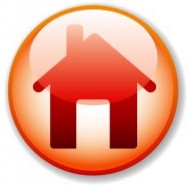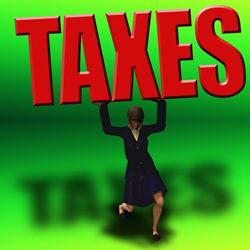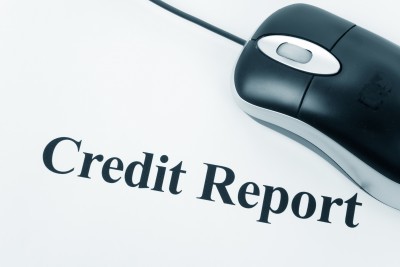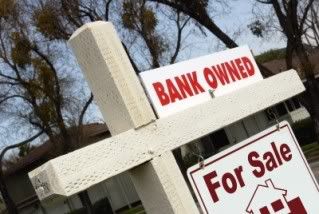To a Chester County home loan shopper, there may seem to be an endless--and confusing--array of mortgage types. Of course you want to choose the option that is best suited to your current and future financial situation, but understanding the terminology, types, and monetary ramifications is not always easy. Mortgages generally fall into four categories (fixed rate, adjustable rate, step, and balloon) according to the interest rate and duration of the loan.
Basic terminology;
Fixed rate--The interest rates do not change during the life of the loan, thus allowing you to know the amount of your payments.
Adjustable rate (ARM)--the interest rate is tied to certain indexes plus a margin and can fluctuate up or down, thus affecting each payment,
Step--the interest rate and monthly payment remain the same for a specified period of time. After that the interest will change to the prevailing rate and will remain there for the duration of the loan.
Balloon--a loan payment that expands after a certain amount of time. Basically it functions similarly to a fixed rate mortgage in the earlier months/years with a delayed steep increase at the end,
The following information, courtesy of Mortgages.Interest.com, outlines the type of mortgage, the loan characteristics, and the situations most appropriate for each one. If, for instance, you plan to live in your Chester County real estate more than 10 years and desire stability in payment amounts, then a fixed rate mortgage is for you. If, however, your finances are currently strained, but you know that in 5 to 10 years your monetary situation will improve or that you will most likely move within 10 years, then an ARM or balloon mortgage may be better for you. Being familiar with these options allows you to discuss them intelligently with your real estate agent and/or lender and then select the type which best fits your circumstances.
Fixed rate mortgage (30, 20, 15, 10 years)*
- Interest rate & monthly payment remain the same for the entire term of the loan
- plan to live in property more than 10 years
- like total payment stability
0/1 year adjustable rate mortgage
- Interest rate & monthly payment remain the same for 10 years
- Starting the 11th year, interest rate adjusted every year, so payment is subject to change every year for remainder of loan
- plan to live in property more than 10 years
- like initial payment stability, can accept later changes OR
- plan to move within 10 years
- want loan to remain in force in case plans change
7/23 (2-Step) or '30 due in 7' mortgage
Interest rate & monthly payment remain the same for 7 years
- Conversion option: On the 8th year, interest rate adjusted to reflect prevailing interest rates, resulting payment will remain the same for remainder of loan
- plan to live in property more than 10 years
- can tolerate one payment adjustment OR
- plan to move within 7 years
- want to remain in force in case plans change
7/1 year adjustable rate mortgage
- Interest rate & monthly payment remain the same for 7 years
- Starting the 8th year, interest rate adjusted every year, so payment is subject to change every year for remainder of the loan
- plan to live in property more than 7 years
- like initial payment stability, can accept later changes OR
- plan to move within 7 years
- want loan to remain in force in case plans change
7 year balloon mortgage
- Interest rate & monthly payment remain the same for 7 years
- At the end of 7 years, loan is due in full. Borrower must refinance into new loan at prevailing interest rates
- plan to live in property more than 7 years
- are willing to refinance at prevailing market rates OR
- plan to move within 7 years
In addition, there are variations of the ARM, step, and balloon mortgages which differ primarily in the duration of the loan and of the planned residency.
Another good source of information for first-time Chester County home buyers is the Department of Housing and Urban Development (HUD), an agency which oversees FHA loans. This type of loan is particularly useful if you have little money for a down payment, less than great credit, or large monthly bills. An FHA loan requires as little as 3% down (and it can be a gift from a relative or friend). In terms of your credit rating, the FHA is primarily concerned that for the past two years you have paid bills in a timely manner and have been steadily employed. With FHA you have to wait only two years after declaring bankruptcy, and your debit-to-credit ratio can be higher than for a conventional loan. You can qualify for an FHA loan if your monthly payments are no more than 43% of your income, and, as with conventional loans, you can choose from many types.
Of course, there are some negatives to consider before taking on an FHA loan. Interest rates generally run about 1/8 of a percentage point higher than conventional rates, but the real disadvantage of an FHA loan is that the borrower must pay an up-front insurance premium of 1.75% of the mortgage if the down payment is less than 20%. This cost can, however, be added to your total loan amount.
So there you have it--an easy-to-understand guide to mortgage types. As always, you should feel free to contact me anytime with questions. I am glad to recommend a number of outstanding mortgage lenders if you are interested in talking with one.
 1. Don’t spend the maximum amount on a mortgage a lender will loan.
1. Don’t spend the maximum amount on a mortgage a lender will loan. buyers to consult a qualified tax professional to make sure they are fulfilling all obligations of their purchase and subsequent credit.
buyers to consult a qualified tax professional to make sure they are fulfilling all obligations of their purchase and subsequent credit. What If there Are Errors
What If there Are Errors 1. ACT NOW! Time is of the essence. Do not ignore letters or calls from your lender. If you do, chances are that action to foreclose will begin quickly.
1. ACT NOW! Time is of the essence. Do not ignore letters or calls from your lender. If you do, chances are that action to foreclose will begin quickly.



